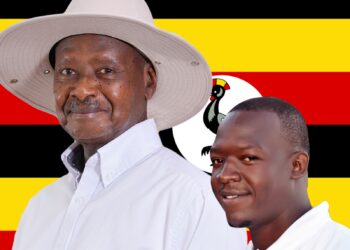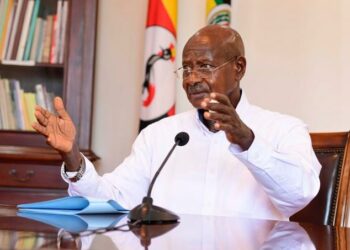In Uganda, poverty alleviation programs have become a familiar sight in the lead-up to elections. While these initiatives are often publicized as efforts to improve the lives of the most vulnerable, a closer examination reveals a troubling pattern that they are frequently designed and implemented during election cycles, which transforming them into political tools that ultimately fail the very people they are meant to assist. This dynamic, fueled by corruption and a lack of genuine commitment, has rendered such programs ineffective at combating poverty in Uganda.
Since President Yoweri Museveni assumed power in 1986, his administration has rolled out numerous poverty alleviation programs, such as Entandikwa, Bonna Bagaggawale, Emyooga, and now Parish development Model (PDM) often timed to coincide with election years. As the nation approaches a general election, the government typically unveils initiatives promising to improve living standards, providing cash transfers, agricultural subsidies, and job training programs. However, rather than being heartfelt efforts to uplift the poor, these programs often appear to be strategically deployed to secure votes.
The atmosphere surrounding elections is charged with political maneuvering, and poverty alleviation initiatives become pawns on the electoral chessboard. Politicians unveil these programs to garner public favor, offering immediate solutions to deeply entrenched issues. Yet, the predominant focus on short-term gain means that these efforts often lack the necessary depth and sustainability that genuine poverty alleviation requires.
One of the most significant pitfalls of election-linked poverty alleviation programs is their susceptibility to corruption. The urgency to deliver quick results leads to lapses in oversight and transparency, creating fertile ground for mismanagement and embezzlement. Reports of funds intended for poverty reduction vanishing into the pockets of corrupt officials are all too common.
In the 2021 general elections, allegations surfaced regarding the misappropriation of funds allocated for the Social Assistance Grants for Empowerment (SAGE), a program aimed at supporting the elderly and vulnerable individuals. Investigations revealed that substantial sums meant for beneficiaries were diverted, leaving countless citizens without the support they desperately needed. This cycle of corruption not only undermines the efficacy of poverty alleviation programs but also breeds distrust among the electorate, who continue to suffer from economic hardships.
In addition to corruption, the fundamental design of these programs often reflects a lack of genuine understanding of the needs of the targeted communities. Programs hastily thrown together in the midst of electioneering lack comprehensive research and fail to engage with the realities of poverty. For instance, initiatives focused on providing loans to small-scale farmers may be misguided in areas where the primary challenge is access to markets and not capital.
Moreover, many programs tend to focus on towns, neglecting the rural village populations who make up a significant portion of those living in poverty. This one-size-fits-all approach disregards local contexts, making it easy for these programs to fail. The result is not only inefficacy but also an exacerbation of existing inequalities, as those left out of the conversation fall further behind.
The media plays a crucial role in shaping public perception of poverty alleviation programs, often magnifying the government’s promotional campaigns while downplaying the underlying issues. Coverage tends to focus on the hype surrounding new initiatives rather than critical analysis of their impact, contributing to a skewed understanding of their effectiveness.
As citizens witness repeated cycles of poorly implemented programs that yield little tangible relief, cynicism toward governing authorities grows. This disillusionment can diminish civic engagement and erode trust in future initiatives, leaving vulnerable populations further isolated and hopeless.
Addressing the failures of poverty alleviation programs in Uganda requires a significant shift in approach. First and foremost, there is an urgent need for timelines to extend beyond election cycles. Long-term planning and investment in comprehensive strategies are crucial for rooting out poverty in a sustainable manner.
Additionally, engaging communities in the design and implementation phases is essential for ensuring that programs meet real needs. An inclusive approach that prioritizes grassroots involvement can help tailor solutions that resonate with the local context, fostering ownership and commitment among beneficiaries. It is also desired to enforcing strict accountability measures to mitigate the risk of corruption. The government can restore public trust and ensure that resources are utilized effectively.
General Museveni administration’s poverty alleviation programs, often unveiled in the throes of election campaigns, repeatedly fall short of their intended goals. By prioritizing political gain over genuine needs, these initiatives circumvent the deeper issues surrounding poverty and are vulnerable to corruption and mismanagement. Moving forward, Uganda must embrace a more comprehensive and community-driven approach to poverty alleviation that transcends political cycles, ensuring that efforts to combat poverty are both effective and meaningful for those who need them the most. Only through change in leadership, structural change and genuine engagement can the cycle of failure be broken, and Uganda’s most vulnerable populations truly aided.
The author is a Social Development specialist and CEO Bridge Your Mind Centre.
Email; bwani.jose@gmail.com
Do you have a story in your community or an opinion to share with us: Email us at editorial@watchdoguganda.com













